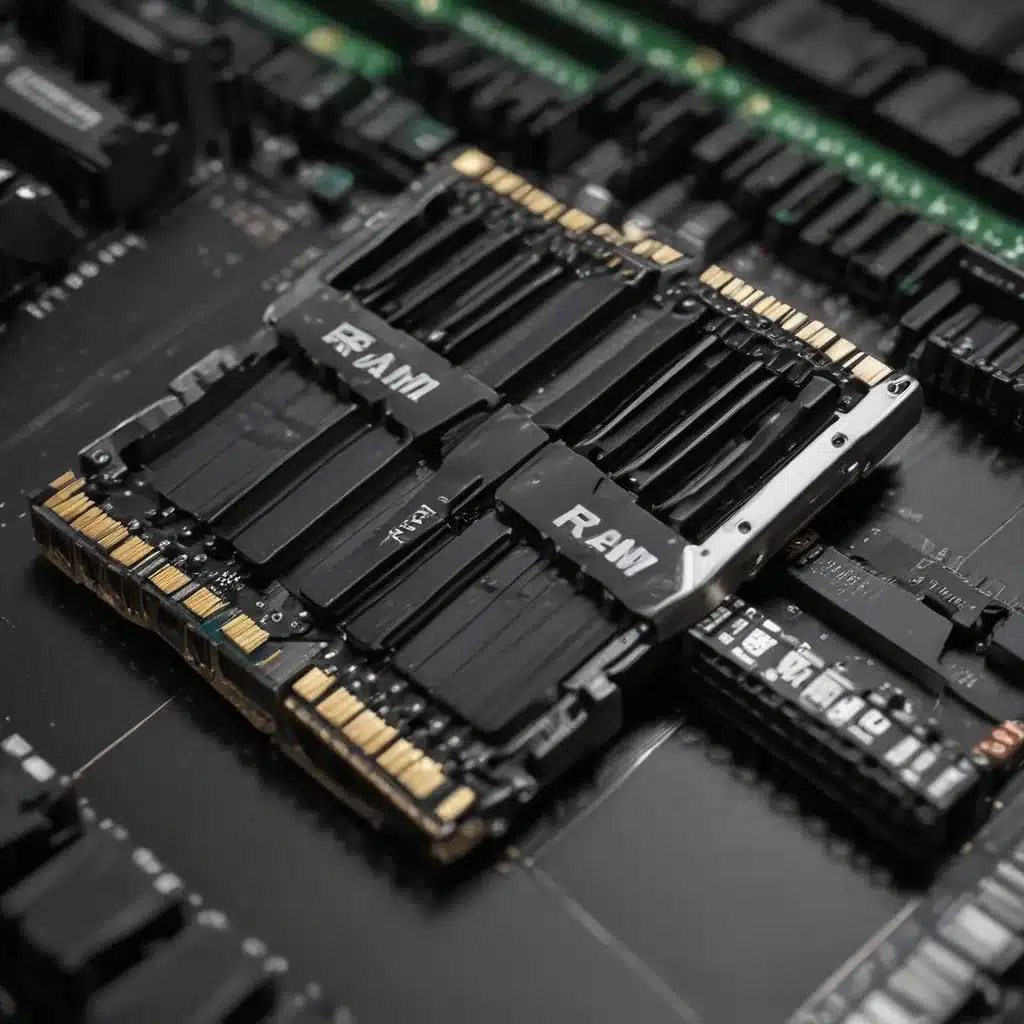When Do I Need More RAM?
You know the drill – you’ve got twenty browser tabs open, Photoshop’s chugging along, and that game you’re playing is starting to stutter. Suddenly, it hits you – your computer’s struggling to keep up. Is it time to upgrade your RAM?
Well, my friend, that’s exactly what we’re going to explore today. As a self-proclaimed computer whisperer, I’m here to help you figure out if more memory is the solution to your sluggish system woes. So, grab a cuppa and let’s dive in, shall we?
First things first, let’s talk about what RAM actually is and how it affects your computer’s performance. RAM, or Random Access Memory, is the short-term storage your machine uses to quickly access the data it needs to run programs, open files, and perform all sorts of tasks [1]. Think of it like the brain’s working memory – the more you’ve got, the smoother things tend to run.
Now, the amount of RAM you need largely depends on what you’re using your computer for. If you’re a casual browser and email-checker, 8GB might be just fine [2]. But if you’re a hardcore gamer, a photo editing wizard, or someone who likes to have a million tabs open at once, you might benefit from a RAM upgrade [3].
How Much RAM Do I Need?
Ah, the age-old question – how much RAM is enough? Well, my friends, the answer is a bit like Goldilocks and the Three Bears – not too little, not too much, but just right.
For most general use, 16GB is a solid sweet spot [2]. It gives you enough breathing room to bounce between tasks without your computer turning into a slug. But if you’re really pushing the limits with intensive programs or epic multitasking sessions, 32GB might be worth considering [3].
Now, I know what you’re thinking – “But Alaina, won’t more RAM automatically make my computer faster?” Well, hold your horses there, partner. While having enough RAM is crucial, it’s not the be-all and end-all of performance [4]. Other components, like your CPU and storage, also play a big role in how snappy your system feels.
What If I Already Have 16GB?
Ah, the age-old question – how much RAM is enough? Well, my friends, the answer is a bit like Goldilocks and the Three Bears – not too little, not too much, but just right.
For most general use, 16GB is a solid sweet spot [2]. It gives you enough breathing room to bounce between tasks without your computer turning into a slug. But if you’re really pushing the limits with intensive programs or epic multitasking sessions, 32GB might be worth considering [3].
Now, I know what you’re thinking – “But Alaina, won’t more RAM automatically make my computer faster?” Well, hold your horses there, partner. While having enough RAM is crucial, it’s not the be-all and end-all of performance [4]. Other components, like your CPU and storage, also play a big role in how snappy your system feels.
So, if you’ve already got 16GB and your computer is chugging along just fine, there’s no need to go on a wild RAM-buying spree. Instead, take a good hard look at what you’re actually doing with your machine and see if those extra sticks would really make a noticeable difference [5]. After all, your hard-earned cash is better spent on upgrades that’ll truly benefit your workflow or gaming experience.
Upgrading Your RAM: What to Consider
Alright, so you’ve determined that more RAM is the way to go. Fantastic! But before you start browsing those memory module listings, there are a few key things you’ll want to keep in mind.
First and foremost, compatibility is king. Your motherboard can only handle certain types and speeds of RAM, so make sure you know what your system is packing [6]. Trying to shove the wrong kind of memory into your rig is a surefire way to end up with a very expensive paperweight.
Next up, consider your current setup. If you’ve got empty slots on your motherboard, adding more RAM is a cinch – just pop in some matching sticks and you’re good to go [7]. But if all your slots are full, you’ll need to replace your existing modules with higher-capacity ones. And remember, your system will only run as fast as your slowest stick of RAM [6].
Last but not least, don’t forget about that all-important price-to-performance ratio. Sure, you could load up your rig with the latest and greatest DDR5 memory, but is the extra cost really worth it if your current DDR4 setup is already doing the trick? [8] Sometimes, a little bit of research and a dash of budgetary restraint can go a long way.
The Verdict: Is it Time to Upgrade?
So, my fellow computer enthusiasts, have you reached the point where more RAM is a must-have? Let’s recap the key considerations:
- If you’re constantly running out of memory, struggling with intensive tasks, or seeing noticeable slowdowns, it might be time to upgrade.
- 16GB is a great baseline for most users, but 32GB can provide a performance boost for heavy multitaskers and content creators.
- Make sure your new RAM is compatible with your system and that you’re getting the best bang for your buck.
At the end of the day, a RAM upgrade can breathe new life into an aging machine. But don’t forget – it’s just one piece of the performance puzzle. Keep an eye on your other components, too, and don’t be afraid to consult the experts if you need a little extra guidance.
Happy computing, my friends! And remember, when it comes to your computer, the sky’s the limit – as long as your wallet can handle it.
[1] https://www.reddit.com/r/buildapc/comments/16wnxm1/when_to_upgrade_ram/
[2] https://www.pcworld.com/article/1939595/should-you-upgrade-your-ram-5-things-to-consider.html
[3] https://www.reddit.com/r/buildapc/comments/st85ck/is_16gb_ram_still_okay_in_2022_or_should_i/
[4] https://www.kingston.com/en/blog/pc-performance/memory-vs-storage-pc-performance
[5] https://www.howtogeek.com/691292/5-things-to-consider-before-upgrading-your-pcs-ram/
[6] https://www.tomshardware.com/features/ddr5-vs-ddr4-is-it-time-to-upgrade-your-ram
[7] https://forums.tomshardware.com/threads/how-do-i-upgrade-my-32gb-ram-to-64gb-at-a-later-time.3800776/
[8] https://www.quora.com/Do-I-need-to-install-any-software-after-installing-new-RAM-sticks-in-my-desktop













